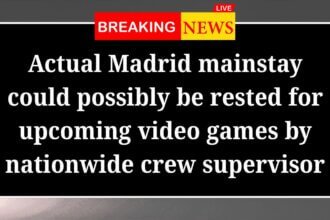Judge Temporarily Blocks Trump’s Troop Deployment in Illinois
In a pivotal legal ruling, a federal judge has temporarily blocked former President Donald Trump from deploying troops to Illinois amid escalating tensions related to civil unrest. This decision, issued on October 10, 2023, comes as a direct response to concerns surrounding the potential use of military forces in domestic situations, raising questions about the balance of power between state governance and federal authority.
- Judge Temporarily Blocks Trump’s Troop Deployment in Illinois
- Context: The Background of the Deployment Request
- The Legal Landscape: Ruling and Its Implications
- Analysis: The Broader Impact of the Ruling
- Local Reactions: Voices from Illinois
- National Ramifications: A Divided Nation
- The Politics of Civil Unrest: A Historical Perspective
- Future Implications: What Lies Ahead?
- FAQ
Context: The Background of the Deployment Request
The request for troop deployment arises from a series of ongoing protests and civil unrest in various cities across the United States. In the wake of social justice movements following the death of George Floyd in 2020, local and state governments have grappled with maintaining order while respecting citizens’ rights to assemble and protest. The Trump administration had previously signaled its willingness to utilize military force to address what it perceived as a breakdown in law and order during this tumultuous period.
A report by the Associated Press highlighted that the unprecedented use of federal troops in cities like Portland and Washington D.C. last summer raised significant scrutiny over the military’s role in policing domestic issues. Illinois Governor J.B. Pritzker has consistently opposed any federal deployment of troops, arguing that such actions undermine state authority and exacerbate tensions in communities already facing unrest.
The Legal Landscape: Ruling and Its Implications
The ruling delivered by U.S. District Judge Robert Dow found that the proposed deployment would likely infringe upon the rights of Illinois residents and violate the Posse Comitatus Act, which restricts the use of federal military personnel to enforce domestic policies. Judge Dow stated, “The Constitution grants states the authority to govern their own affairs without interference from the federal government.” This ruling signifies a crucial legal stance that emphasizes state autonomy in managing law enforcement and public safety.
This decision is significant not only for Illinois but also for other states grappling with similar challenges. Legal experts suggest that it reinforces the legal framework that delineates federal military authority from state governance, ensuring that states maintain control over their own law enforcement mechanisms.
Analysis: The Broader Impact of the Ruling
Legal scholars and analysts note that this ruling may set a precedent for how federal forces can be utilized in the future, especially within contexts of civil unrest. According to constitutional law scholar Richard Primus, “This ruling underscores the fragility of federal-state relations in times of crisis. It may deter future administrations from overstepping their bounds when it comes to domestic matters.”
Furthermore, the decision has ignited discussions around the interpretation of the Insurrection Act, which allows for the deployment of federal troops in situations of insurrection or rebellion. The narrow interpretation applied by Judge Dow suggests a more cautious approach to invoking such powers, a move welcomed by many civil rights advocates who fear the militarization of local policing.
Local Reactions: Voices from Illinois
Reactions from Illinois lawmakers and residents have been mixed. Governor Pritzker applauded the ruling, emphasizing the importance of maintaining local control over law enforcement. “This ruling protects our democracy and ensures that decisions about public safety are made by those who are closest to the communities affected,” he stated in a press release following the judge’s decision.
Conversely, some Republican leaders expressed disappointment, arguing that the deployment of troops could have been a necessary response to the escalating violence witnessed in Illinois cities. State Senator Darren Bailey, a vocal supporter of Trump, stated, “We need every available resource to protect our citizens and restore order. The federal government should be stepping in to help, not standing by.”
National Ramifications: A Divided Nation
This ruling occurs against a backdrop of stark national division. As protests and civil unrest continue across the country, the question of how best to manage these situations remains hotly debated. The decision by the Illinois judge could influence similar cases in other states, particularly those experiencing heightened tensions.
A recent poll conducted by the Pew Research Center revealed that a majority of Americans—approximately 62%—express concerns about the federal government’s role in local law enforcement. This sentiment may reflect a broader push towards re-evaluating the military’s involvement within domestic borders. Many citizens are wary of perceived overreach by federal authorities, particularly in times of social upheaval.
The Politics of Civil Unrest: A Historical Perspective
Historically, the deployment of federal troops in domestic situations has been contentious. Instances such as the deployment of troops during the Civil Rights Movement illustrate the complexities of using military forces to manage civil unrest. The federal government’s involvement often leads to increased tensions rather than resolution. For instance, in 1965, federal troops were sent to Selma, Alabama, during the Voting Rights Movement, highlighting the delicate relationship between state and federal authorities.
This current ruling is part of a larger narrative involving public perception of law enforcement and military intervention in civil matters. As communities continue to grapple with issues of race, equity, and justice, the role of federal troops in local governance will likely remain a contentious topic.
Future Implications: What Lies Ahead?
As the legal landscape continues to evolve in response to civil unrest, the implications of this ruling will likely resonate far beyond Illinois. The ongoing dialogue between state and federal authorities will shape the future of law enforcement and military involvement in domestic affairs.
For future administrations, the ruling may serve as a warning against overreach. Legal experts anticipate that this case could lead to stricter interpretations of the Insurrection Act and a more cautious approach to deploying military forces in civil matters.
FAQ
Q: What was the basis of the judge’s ruling?
A: The judge ruled that deploying federal troops to Illinois would likely violate the rights of residents and contravene the Posse Comitatus Act, which limits military involvement in domestic law enforcement.
Q: How does this ruling affect state and federal relationships?
A: This ruling reinforces state authority over local governance, emphasizing that states should control their own law enforcement without federal interference in domestic matters.
Q: What are the potential future implications of this ruling?
A: The ruling may set a precedent for how federal forces can be used in civil unrest situations, potentially limiting future administrations’ ability to deploy troops domestically.
Q: How have local leaders reacted to the ruling?
A: Governor J.B. Pritzker praised the decision for protecting state authority, while some Republican lawmakers expressed disappointment, advocating for the use of military resources to ensure public safety.







